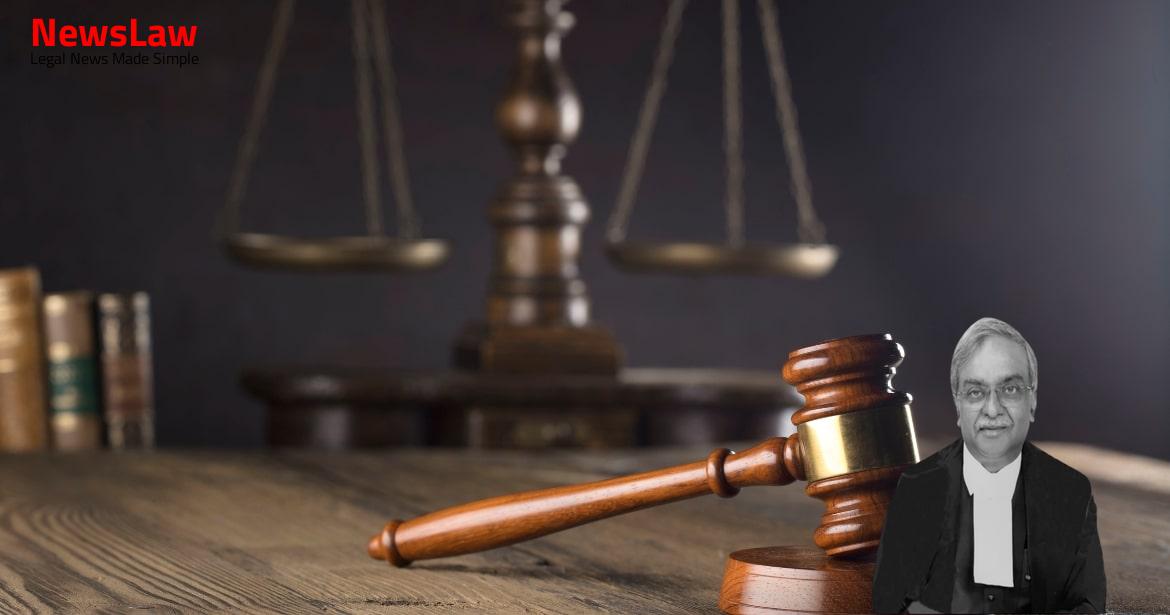Delve into the detailed legal analysis conducted by the courts in a case revolving around specific performance in a Hindu Undivided Family (HUF) property dispute. The courts meticulously evaluated factors such as readiness and willingness, equitable conduct, and the nature of the property ownership, leading to nuanced decisions. This case highlights the importance of accurate disclosures and consistent pleadings in legal proceedings, ultimately shaping the outcome of the dispute.
Facts
- Plaintiffs filed a suit for specific performance regarding a property in Chandigarh.
- Defendant contested the suit claiming the property belonged to his Hindu Undivided Family.
- Plaintiffs claimed possession of the property and payment of earnest money.
- Trial Court framed eleven issues for consideration.
- Plaintiffs alleged defendant did not honor the agreement and failed to appear for registration.
- Defendant denied handing over possession of the property to the plaintiffs.
- Notice was sent to the defendant for registration of the sale deed.
- Further negotiations took place, resulting in a revised price for the property.
- A draft sale deed was executed between plaintiff no.1 and the defendant.
- Plaintiffs sought relief of specific performance or damages as an alternative.
- Agreed consideration for the property was Rs.3,50,000/-.
- Plaintiffs did not give up their claim against the co-sharers of the defendant.
- The suit property was deemed as HUF property by the High Court.
- The theory of a new agreement reducing the price was not proven.
- Plaintiffs 2 to 4 were deemed not entitled to maintain a suit for specific performance as they were not parties to the agreement.
- The suit property was found to be impartible under the Capital of Punjab (Development and Regulation) Act, 1952.
- The Trial Court awarded damages of Rs.40,000 to plaintiff no.1 instead of specific performance.
- The Trial Court’s decision on the issue of readiness and willingness was upheld by the District Court.
- Possession of the suit property was not handed over to plaintiff no.1.
- The High Court confirmed the decrees passed by the Trial Court and the First Appellate Court.
- Plaintiffs were considered ready and willing to perform their part of the agreement as they had the required funds ready.
- The District Court dismissed the appeal based on lack of pleading about legal necessity for the sale of HUF property.
Also Read: Judicial Impropriety and Fresh Decision
Arguments
- The plaintiffs satisfied the test laid down by Section 16(c) of the Specific Relief Act, 1963.
- The Court relied on the decision in the case of Hardeo Rai v. Sakuntala Devi.
- A decree for partition and separate possession can be granted according to Section 22(1)(a) of the 1963 Act.
- The Trial Court should have passed a decree for specific performance limited to the undivided share of the defendant.
- Concurrent findings favored the plaintiffs on the issue of readiness and willingness.
- Decree for specific performance can be passed for an undivided share of the defendant as per several decisions of the Court.
- A direction can be issued to the defendant to perform specifically their part of the contract as per the ruling in Rachakonda Narayana v. Ponthala Parvathamma.
- The Trial Court should have granted a decree of specific performance concerning the undivided share of the defendant.
- Part of the contract can be ordered to be performed based on Section 12 of the 1963 Act principles.
- The suit property can always be subjected to a partition.
- Learned senior counsel for the defendant highlighted the conduct of the first plaintiff
- Argued that the conduct as per the record warrants discretion under Section 20 of the 1963 Act to be exercised against the plaintiffs
- Pointed out that three Courts have ruled against the plaintiffs, suggesting no interference is needed
Also Read: Judicial Review of Caste Category Quota in Recruitment
Analysis
- The plaintiffs claimed that after executing the suit agreement, the price was reduced to Rs.2,90,000 from Rs.3,50,000, but the defendant denied this in the written statement.
- The plaintiffs’ assertion of receiving possession was contradicted by the defendant’s denial and the dismissal of an injunction application based on lack of possession.
- Specific performance being an equitable relief, a person seeking it must act equitably, which influences the court’s discretion.
- The discrepancy regarding the property being individual or HUF-owned was a crucial point in the case.
- The plaintiff’s conduct, including contradictory statements and evidential gaps, impacted the court’s decision-making process.
- The plaintiff’s failure to disclose relevant information, like the defendant’s status as the Karta of the HUF, affected the case.
- The issue of possession, payment, and property ownership being HUF were significant factors in evaluating the plaintiff’s claims.
- The plaintiff’s changing stance on novation and price reduction, lack of possession, and inconsistencies in their pleadings were highlighted in the analysis.
- The differences between the draft sale deed and the plaintiff’s claims created further complexities in the case.
- Plaintiffs are disentitled to relief of specific performance due to making false and incorrect statements in the plaint.
- Plaintiff No 1 admitted in the examination-in-chief that the suit property was HUF property.
- Plaintiffs continued to prosecute the suit for the entire property even after admitting it was HUF property.
- Plaintiffs did not give up their case concerning the shares of other co-sharers who were not parties to the suit.
- Trial Court, Appellate Court, and High Court were justified in denying discretionary relief of specific performance to the plaintiffs.
- Modification of the decree by directing that the damages of Rs.40,000 will carry interest at 6% per annum from the date of the Trial Court’s decree.
Also Read: Quashing of Complaint: Legal Analysis
Decision
- The appeal is partially allowed
- There will be no order as to costs
Case Title: MAJOR GEN.DARSHAN SINGH (D) BY LRS.. Vs. BRIJ BHUSHAN CHAUDHARY (D) BY LRS. (2024 INSC 157)
Case Number: C.A. No.-009360-009360 / 2013



